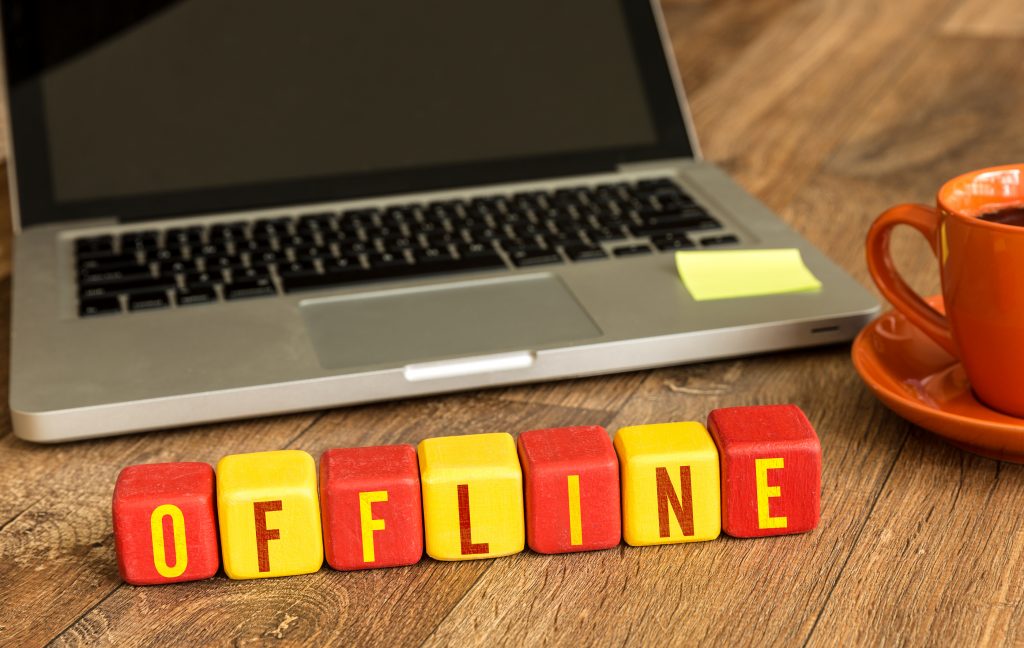
It was frugality that first led me down the path toward a less-digital life. Several months after graduating from college, I found myself in Wichita, Kansas, with an AmeriCorps paycheck of $808 per month that I felt would be better spent on rent and groceries than on internet and a smart phone. This is known as being a responsible adult.
Plus there was my not-so-secret desire to live out a childhood Laura Ingalls Wilder dream. Growing up I was envious of the “Little House on the Prairie” writer’s life. It seemed so full of adventure, excitement, and community! After four nose-to-screen college years editing photos, watching YouTube, and Facebook stalking more than I care to admit, I was ready for a digital change.
Kansas was my first year with no internet and no bed. I slept on a homemade pallet frame and two inches of craft foam. My thermostat stayed stuck at a not-so-balmy 53 degrees during winter months, leaving me to pad across the floor in double layers of socks and tape plastic garbage bags over the windows to lessen the draft. I drank a lot of cheap tea and daydreamed from my spot on the squishy cushions of the yellow velour couch. When it came to texting, my T9 Word skills were enviable.
I found the overall experience to be terrifically blissful. Most people thought otherwise.
“Aren’t you bored here?” visitors would ask after I’d casually inform them that Netflix actually wasn’t an option. “Why don’t you come to my place? It’s more interesting.” Others, not realizing my lifestyle was a choice, tried to help by offering suggestions. “There some are really cheap smartphones out there, you know,” they’d casually mention.
RELATED: 5 Tech Habits that Hurt Your Relationship
But I actually found my life pretty interesting. For the first time in many years, I was never bored. Rather than rushing home from work and going online, I’d rush home to bake bread. Or sew terrible shirts out of old bed sheets. Or read, uninterrupted, for hours. Some days I didn’t even bother to turn on my computer. Instead, I’d switch on the ancient clock radio I’d permanently borrowed from work and set to work rewrapping my bike handlebars. When my flip phone broke, I’d just shrug and rustle up a second-hand spare. Sure, I wasn’t doing anything dramatically life-changing, but these little experiences felt fulfilling in ways my digital habits didn’t.
What I found most interesting was how much less anxiety I felt. I found time for things I had always sworn I never had time for. Long-forgotten projects got completed. I wrote letters to friends, photographed more, and slept better. I prioritized. Without internet I stopped spending so much time comparing my life to others’ and I started investing in the relationships around me with long phone calls and in-person visits. The less connection my life had to the digital world, the more connection I had to people and life around me.
And I wasn’t the only one feeling this way. There are actually a lot more less-digital Millennials out there than expected. Over the years I met a number of 20-somethings who continue to shun iPhones and Androids in favor of flip phones. There was an instant connection whenever I met another flip-phone-wielding person, like we were all part of a secret club and the password to get in was this tiny, indestructible pocket friend.
When I did want to use the internet (Google Maps is awfully hard to bring up on a flip phone), I could usually count on my neighbor’s weak Wi-Fi signal and if that failed, I’d dodge down the alleyway to the neighborhood bar or walk over to the library. It was a minor setback, though.
In many ways, that year in Kansas became one of the most defining periods of my life. I was in a position where I could live more simply by choice and I decided to give it a shot.
My life’s a little more digital now: My flip phone is my main phone, but since I oversee social media for work, I also have an iPhone with no phone or data plan that stays on at work and off at home. My internet-free home life was going pretty great until several weeks ago when my neighbor slipped me her Wi-Fi password. I now have an overabundance of knowledge on important information, like the breakup of Hiddleswift.
Fortunately, while I navigate my new digital terrain, there’s a shred of familiarity leftover from that Kansas year: I still don’t own a bed. At least that hasn’t changed.